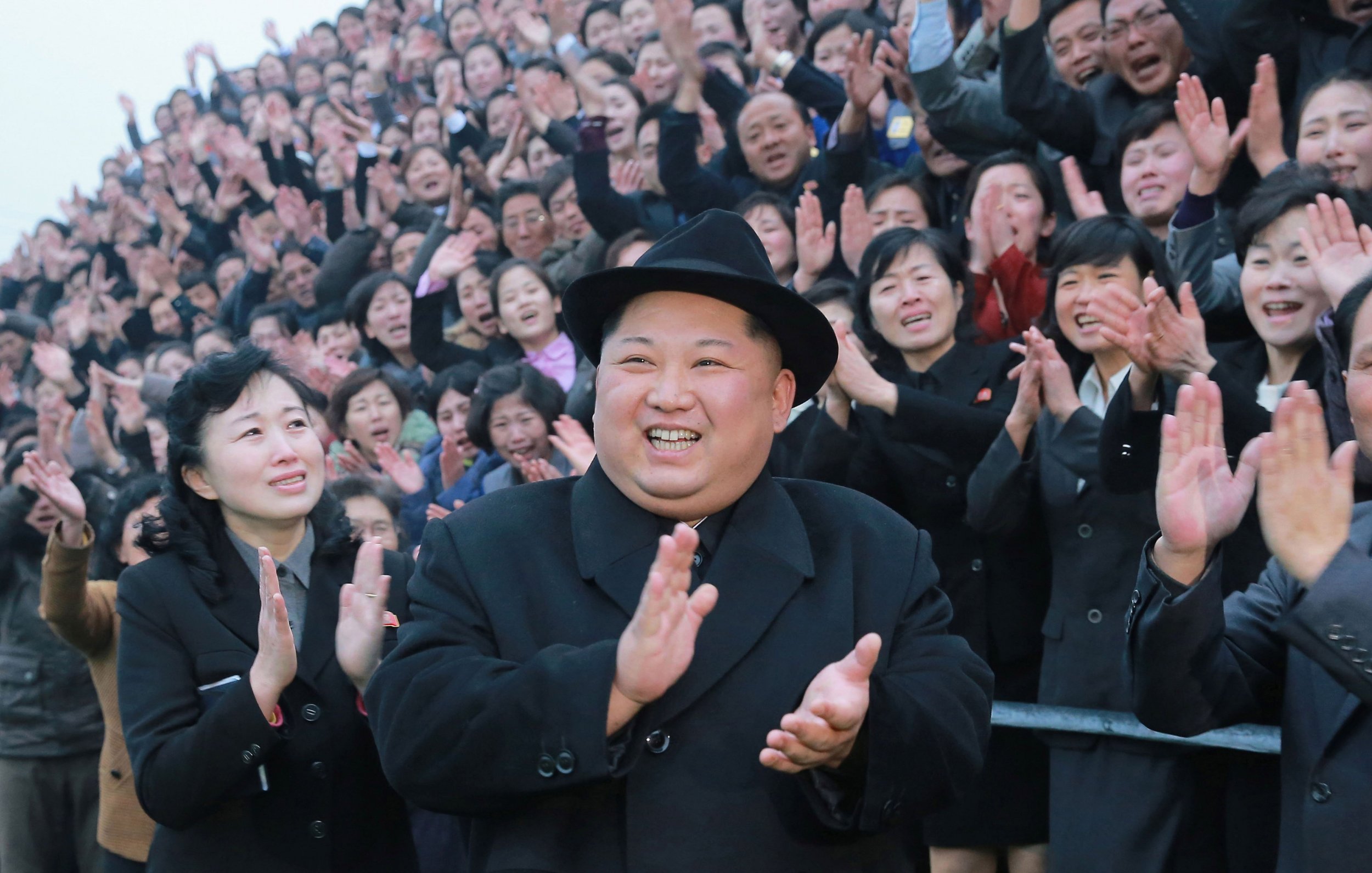
North Korea is using its impending participation in next month's Winter Olympics in Pyeongchang to bolster its ongoing propaganda campaign that the rogue state and democratic South Korea should be reunified.
A two-minute clip titled "Reunification is by Korean nation itself," uploaded by the North Korean propaganda site DPRK Today, paints the Olympics as part of the rogue state's reunification campaign, reported the South Korea–based newspaper The Chosun Ilbo. The clip shows emotional images of North and South Koreans, including footage of times they've cooperated during past athletic competitions.
The video includes subtitles that state, "We are a homogeneous nation by same blood.... Let's resolve all issues by the efforts of our nation itself...thereby opening up a new history of national reunification."
According to Chosun Ilbo, the video "seems generally designed to give the impression that it is North Korea that is hosting the games."
Watch the clip below.
North Korea's participation in February's Winter Olympics was finalized last week, after the North and South resumed diplomatic efforts for the first time in roughly two years. This occurred after the U.S. and South Korea agreed to hold off on any large-scale joint military exercises until after the games, as to avoid antagonizing Pyongyang.
On Wednesday, North and South Korea took their efforts to rekindle relations to new heights when they agreed to march under a unified flag during the opening ceremony for the games. The nations also plan to field a joint women's ice hockey team.
The North might be portraying these developments as steps toward reunification, but many are uneasy about the rapprochement. Republican Senator Lindsey Graham accused South Korea of "undercutting" President Donald Trump's efforts to pressure North Korea to step away from its nuclear ambitions by allowing the reclusive nation to participate in the Winter Olympics. His Republican colleague, Senator Ted Cruz, took a somewhat different tone and seemed cautiously encouraged by the talks, yet he also called for the U.S. Treasury Department to issue harsh new sanctions to strangle North Korea.
Recent reports have suggested the Trump administration is considering a limited, or "bloody nose," military strike against North Korea. On Wednesday, President Donald Trump wouldn't say whether or not this was true, though he reportedly denied such a plan was in the works during a recent phone call with South Korean President Moon Jae-in. Trump also said he would consider direct talks with North Korean leader Kim Jong Un, but expressed doubts about the potential benefits of dialogue. "I'd sit down, but I'm not sure that sitting down will solve the problem," Trump told Reuters at the White House. Additionally, Trump accused Russia of helping North Korea sidestep economic sanctions. "Russia is not helping us at all with North Korea," Trump said. "What China is helping us with, Russia is denting. In other words, Russia is making up for some of what China is doing."
Meanwhile, the improved relations across the DMZ are causing headaches on the ice. Sarah Murray, the coach of the South Korean women's ice hockey team, told reporters she believes the decision to unify the teams is damaging to the players.
"It's hard because the players have earned their spots, and they think they deserve to go to the Olympics. Then you have people being added later. It definitely affects our players," Murray said.
A senior official for the Korea Ice Hockey Association also expressed concern about the joint team announcement. "[The players] were just furious and found the idea absurd," the official, who was unnamed, told Reuters. "We are utterly speechless that the government just picked us out of blue and asked us to play with total strangers at the Olympics."
The South Korean public is also reportedly not thrilled about North Korea's participation in the games and quite unhappy with some of the decisions its government has made in this regard. Only around 40 percent of South Koreans are in favor of the plan to march under a unified flag, according to a survey released on Thursday by the South Korean pollster Realmeter.
North and South Korea have been bitterly divided for over half a century. The Korean War, which lasted for three bloody years in the 1950s (1950-53), split the Korean Peninsula in two. Since that time, despite a shared history and ethnicity, the two Koreas have treated one another as enemies. In 2017, North Korea conducted a series of missile tests in its pursuit of a nuclear-tipped ballistic missile capable of reaching the U.S. This heightened tensions with both the U.S. and the South, while leading to fears of war, making the recent talks a rare, significant development in the modern history of the Korean Peninsula.
Uncommon Knowledge
Newsweek is committed to challenging conventional wisdom and finding connections in the search for common ground.
Newsweek is committed to challenging conventional wisdom and finding connections in the search for common ground.
About the writer
To read how Newsweek uses AI as a newsroom tool, Click here.








